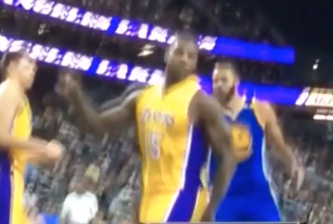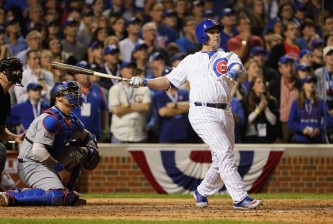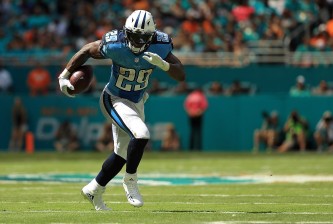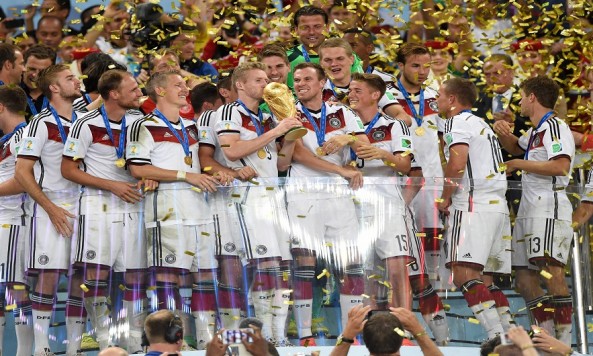With Germany emerging victorious over Argentina in the World Cup final, the tournament has now come to a close. And nearly every match was thoroughly entertaining. While there were moments that were less than stellar—Luis Suarez’s Hannibal Lecter impersonation, Brazil’s early surrender to the Germans—these events did not overshadow the level of play we witnessed by the thirty two teams that participated. Let’s take a closer look at the key points we learned from World Cup play.
A player’s stock can rise (and fall) in rapid fashion
While the world wished Colombian striker James Rodriguez a happy 23rd Birthday just a few days ago, his actual present came a day later when his prowess earned him the tournament’s Golden Boot award, surpassing far more established names like Messi and Neymar. While the award itself does not instantly confer any monetary value to the young star, it would seem to be his ticket away from Monaco in the French league (possibly) to Real Madrid. It is rumored that Monaco has lowered the transfer fee price to $85M euros, and Rodriguez has said that playing for Real Madrid would be a dream come true for him, and of course, such a dream will come with a lucrative payday for him as well. Whether this deal comes to fruition or not is unclear, but it seems that this young man will be receiving a hefty raise in the near future.
The same can be said for Mexican goalkeeper Guillermo Ochoa, who had a stellar set of World Cup matches. As a player who entered World Cup play out of contract after Ajaccio was relegated to second division. Ochoa is currently entertaining several lucrative offers and will be making a final decision within the next week. What is clear is that his value has increased substantially as a result of his play on the big stage.
Of course, one’s value can drop on the international stage as well. For example, Barcelona has long believed to be on the fence about the future of Dani Alves, who they suspect might be on the decline. If they were unsure, that decline was demonstrated in his World Cup play. By the demise of Brazil in the runner up game, Alves was a fixture on the bench for the team that he had so much success with in past tournaments. Several other players had subpar performances in World Cup play, among them Argentina’s Gonzalo Higuain and Brazil’s Fred. Their club teams have long memories, and these performances will factor into their future playing time (and salaries) in the upcoming seasons.
The best team actually won
Germany played as a faceless unit. From their most decorated veteran Miroslav Klose to their manager Joachim Low, this is, well, a team. We heard much about Neymar without mentioning team Brazil. The same for Lionel Messi of Argentina, whose comparisons with Diego Maradona often held center stage while team Argentina went lacking. After the Sunday finale, it was team Germany hoisting the Cup while the other pretenders to the throne could only watch. Well done, Germany, for restoring faith in those of us who value team play above all else.
Paying a manager top dollar will ensure World Cup success—Or will it?
Let’s take a closer look at the countries who paid their national team managers top dollar for top results, and see if there was an actual correlation in World Cup success. Coming in at number one is Fabio Capello of Russia at $11.4M/year. Second was Roy Hodgson of England at a yearly salary of $5.9M and third was Casare Prandelli of Italy at $4.4M/year. It’s clear that they all have one thing in common, and that is that none of their teams advanced out of the group stage. While Capello and Hodgson are still employed (at the moment), Capello was summoned to the Russian legislature in order to explain Russia’s early exit. And with Russia hosting the World Cup in 2018, he will be under intense pressure to produce a swift turn of events.
Hodgson still faces an uncertain future in England. At least Prandelli knew what fate would most likely await him, as he tendered his resignation immediately following Italy’s failure to advance beyond group play. Somehow, after his team tanked in the Cup group stage, he was offered the manager’s position at Galataseray, which he eagerly accepted. While it was expected that most of the lowest paid managers would come from the African peninsula due to fiscal constraints, the surprise was that the lowest paid World Cup manager was Mexican manager Miguel Herrera at a paltry $209K salary. However, it appears that figure may be set to rise, as Mexico and Herrera are currently in negotiations to extend his current arrangement at a substantial salary increase. Herrera is a known commodity in Mexico, and the Mexican FA hierarchy will likely do the right thing for him and the country. They will be fair but not pay excessively in keeping with the honor that is bestowed upon a manager to represent their country at the highest level.
Too often there is little correlation between a team’s World Cup success and the salary of the manager.
Referees often have selective amnesia when it comes to fouls and cards
Watching these same referees officiate their club games at home seems to produce a different set of rules in the World Cup. While most of us would like to see play continue as much as possible in order to keep a certain flow to the game, there are some calls that are just incredible and cannot be explained by labeling them “judgment calls.” If that were the case, it would be considered bad judgment. In the third minute of the Brazil-Netherlands match, Thiago Silva as the last defender grabbed and held onto Arjen Robben’s jersey. As the last defender, the referee is obligated to produce a red card for Silva. Since the initial play began just outside the box, it should’ve been a direct kick from that area. The referee’s decision was astounding, awarding a penalty kick to the Netherlands and showing a yellow card to Silva, neither of which would’ve been the proper call.
During Sunday’s game vs. Argentina, Bastian Schweinsteiger was mauled over and over again by the Argentine squad, yet in order to keep all eleven men on the field for Argentina, there were a myriad of fouls called but without any substantive punishment. There was no reason for this type of play to continue. The referee, Nicola Rizzoli, had been accused of favoring the Argentines by Marc Wilmots of Belgium. It seems clear that the Italian referee would not make similar calls in the Serie A. And if the FIFA body are the ones providing this type of direction, that makes it even worse. Advantage should never be seem as acceptable to any referee, and tarnishes the game.
The World Cup is arguably the best sports tournament in the world
There are many highs and a few lows, but the event brings out the best competition in any team sport. Invariably individuals rise to the occasion and showcase their best qualities in a setting that can only be defined as electric. In the end, there are winners and losers, but aside from rankings, from one through thirty two, there are hugs and handshakes from opposing sides. There are matches pitting political enemies against each other, but at the end of the match, seeing them all shake hands in a common bond makes this event unique.
…So who else is counting down the days til Euro 2016?























